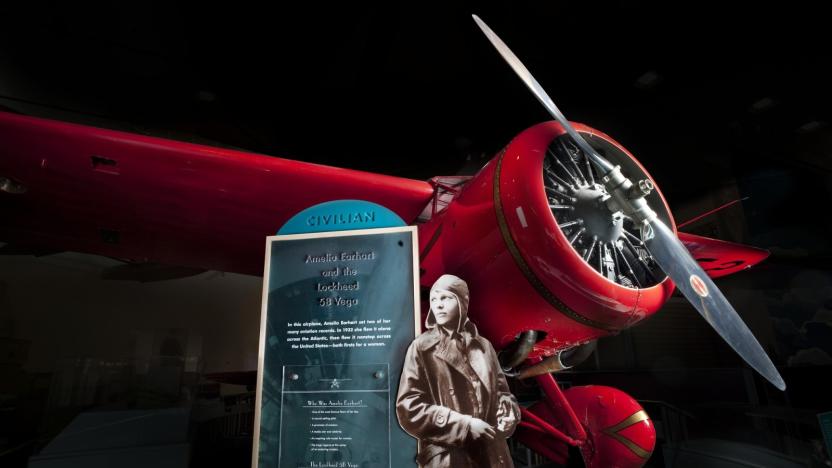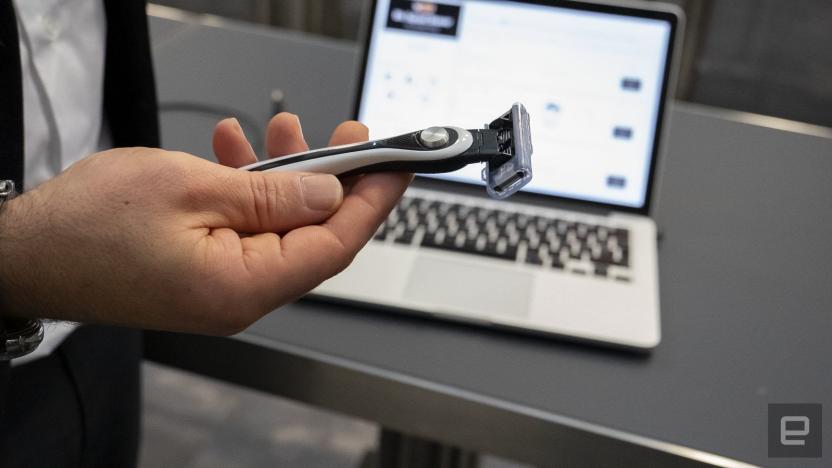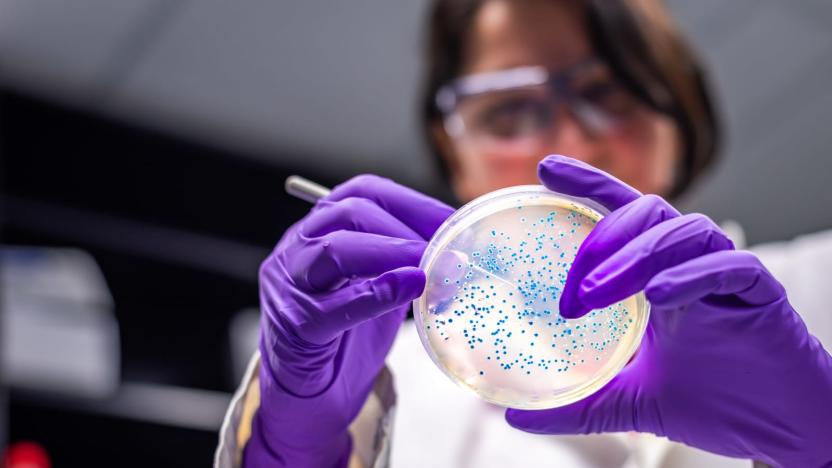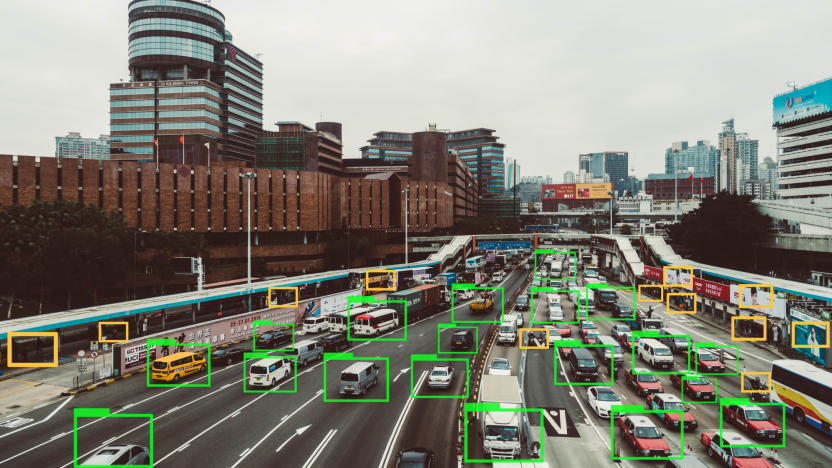research
Latest

IBM shares AI tools to better understand and treat COVID-19
It has released a series of new tools to aggregate data, help researchers explore potential therapies, advance the study of newly sequenced SARS-CoV-2 genomes and make the latest info available to healthcare professionals. Its AI deep search tool is ingesting data from the White House, a coalition of research groups and licensed databases from the DrugBank, Clinicaltrials.gov and GenBank. The cloud-based research tool is a repository of genes, proteins and other molecules from sequenced viral and bacterial organisms, and it’s meant to help researchers identify molecular targets necessary for drug design, test development and treatment.

Intel’s neuromorphic chip learns to ‘smell’ 10 hazardous chemicals
Of all the senses, scent is a particularly difficult one to teach AI, but that doesn't stop researchers from trying. Most recently, researchers from Intel and Cornell University trained a neuromorphic chip to learn and recognize the scents of 10 hazardous chemicals. In the future, the tech might enable "electronic noses" and robots to detect weapons, explosives, narcotics and even diseases.

Recommended Reading: Dead Sea Scroll fragments in DC are fakes
Exclusive: 'Dead Sea Scrolls' at the Museum of the Bible are all forgeries Michael Greshko National Geographic When the Museum of the Bible opened in Washington, DC in 2017, it funded a research project that examined pieces of what was thought to be Dead Sea Scroll fragments. In 2018, the museum announced that all five sections under review were most likely forged. After a more thorough physical and chemical investigation that began in 2019, researchers have filed a 200-page report with the findings: "These fragments were manipulated with the intent to deceive."

Microsoft appoints its first-ever chief scientific officer
For the first in its history, there's a chief scientific officer at Microsoft. This week, the company appointed Eric Horvitz to the role as part of a broader reorganization following the departure of a key executive in February.

Researchers: Facebook’s ad transparency tools are ‘easy to evade’
Facebook has long touted its rules requiring transparency in political advertising as one of the company's most important policy changes following Russian interference in the 2016 election. But new research suggests the company's ad rules may not be as effective at creating the kind of "transparency" Facebook has given itself so much credit for.

YouTube's tweaks to recommend fewer conspiracy videos seem to be working
One of the most important aspects of YouTube is its recommendation engine, as the vast majority of views and watch time come from suggested content, rather than direct traffic. The platform does a good job of determining which videos would be relevant to a given user, but when it comes to news and fact-based videos, conspiracy theory content can find its way in. As of January of 2019 -- and after facing public backlash -- YouTube promised to curb the amount of conspiracy videos it pushes to users. A study published by the University of California, Berkeley states that these efforts do seem to be working, and that their analyses show a 40% reduction in the likelihood of YouTube suggesting conspiracy-based content.

SpaceX approved to build Starship factory and research hub in LA
SpaceX has been given the final go ahead to build its Starship manufacturing plant in the Port of Los Angeles. Authorities granted the company a permit for the facility by a unanimous 12-0 vote, allowing Elon Musk and his team to push on with the development of technology designed to take humans to the moon and Mars.

Smithsonian opens up 2.8 million images to the public
The Smithsonian Institution is releasing a whopping 2.8 million high-res, two- and three-dimensional images from its collections to a new Open Access online platform. The material comes from all 19 Smithsonian museums, nine research centers, libraries, archives and the National Zoo, and it's available for free to anyone with a web browser.

Aston Martin reportedly scraps plans for its all-electric Rapide E
For years, Aston Martin has been promising an all-electric Rapide E. After one false start, the automaker said it would begin making the EV in 2019. Now, a source close to the firm tells Autocar that the Rapide E will not go into production. Instead, it will become a research project.

Bic aims to give you a better shave via its connected razor
Bic wants to design better razors via a new prototype of a connected wet shave called the Next Bic Thing. It looks like a normal five-bladed shaver and handle, but it can capture tons of shaving data, including temperature, humidity, hair density, shaving speed, number of strokes, time spent shaving, blade dullness and even water use. Using this data, Bic will build next-gen shavers that are "perfectly adapted to today's users based on these advanced consumer insights," the company said.

Stanford researchers manage to put a particle accelerator on a silicon chip
In scientific pursuits, like the search for dark matter, researchers sometimes use high-power particle accelerators. But these giant machines are extremely expensive and only a handful of them exist, so teams must travel to places like the SLAC National Accelerator Laboratory in Menlo Park, California, where Stanford University operates at two-mile-long particle accelerator. This may change, though. Researchers believe they have developed an alternative: a laser-driven particle accelerator that fits on a silicon chip.

NASA’s X-59 supersonic jet is cleared for final assembly
NASA's experimental X-59 jet, which could make supersonic commercial travel a reality, has been cleared for final assembly. The X-59 Quiet SuperSonic Technology (QueSST) aircraft, designed by Lockheed Martin, could take its first flight as soon as 2021.

Researchers develop E. coli strain that 'eats' carbon-dioxide
While you're stuffing turkey leftovers in your belly, the last thing you want to think about is E. coli. But spare a thought for the bacterium, it's not always here to harm you (and it needs to eat, too). According to a new paper published in Cell, scientists have developed a strain of E. coli that feeds on carbon dioxide. As Nature explains, the bacteria usually prefer sugars (glucose), but the lab-created strain could be used to create biofuels with a lower emissions footprint than conventional production methods.

Facebook's Viewpoints research app pays you to take surveys
Facebook is once again offering a market research app, but this one appears to avoid some of the privacy concerns from before. The social media behemoth has introduced a Viewpoints app that pays you for completing surveys, research and other tasks that will help refine its products. Unlike Google's Opinion Rewards, you don't get the goods straight away -- instead, you earn points and automatically receive PayPal contributions whenever you reach point milestones. You don't have to worry about your rewards expiring, at least.

MIT researchers teach autonomous cars how to deal with selfish drivers
Self-driving cars are already making their way onto the roads, but there are challenges in having computers share space with human drivers. AIs tend to assume that all humans act the same and behave in predictable and rational ways -- but anyone who's driven in busy traffic knows that's not the case.

Apple debuts Research app with new iPhone and Watch health studies
Apple has released its Research app and opened up its latest iPhone and Watch health studies, just after the results of its heart-rate project with Stanford emerged. This time around, it's hoping to uncover insights about women's health, heart and movement and hearing.

OpenAI published the tool that writes disturbingly believable fake news
In February, OpenAI announced that it had developed an algorithm that could write believable fake news and spam. Deciding that power was too dangerous to unleash, OpenAI planned a staged release so that it could offer pieces of the tech and analyze how it was used. Now, OpenAI says it has seen "no strong evidence of misuse," and this week, it published the full AI.

Migrating eagles flew to Iran and racked up huge roaming bills
Russian scientists were forced to launch a crowdfunding campaign after endangered Steppe Eagles ran up a huge data roaming bill. Equipped with SMS transmitters, they left from Southern Russia and Kazakhstan, but some went a lot farther afield than expected. One particular eagle called Min accumulated a pile of location data messages when it was off the grid in Kazakhstan. Then, it unexpectedly flew to Iran and sent them all off at 49 rubles ($.77) each, using up the team's entire tracking budget.

Google says it's achieved quantum supremacy
Google is standing by its claim that it's achieved quantum supremacy -- marking a major milestone in computing research. The company first made the claim back in September, and while disputed by competitors, Google's research paper has now been published in the scientific journal Nature.

The Energy Observer is a boat that makes its fuel out of seawater
Energy Observer is a vessel powered only by energy that it generates itself, be it the onboard solar panels, wind turbines or a hydrogen fuel cell. It's a floating laboratory, PR stunt and clean-energy evangelist all at once, showing how the future of transportation could be. Halfway through its six-year journey around the world, the vessel stopped in London so we could learn what's happened since its voyage started.











